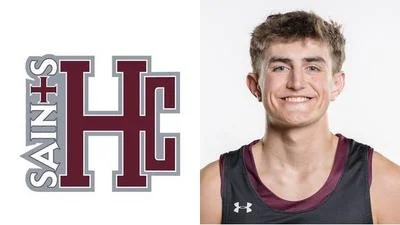FTC grant makes laptops and internet connectivity possible
Through a grant from the Federal Communications Commission, the St. Joe County Public Library is making 200 laptops and hotspots available to local nonprofit agencies for community members to use.
With funds from the grant, the library purchased 200 laptops and hotspots to distribute to non-profits, and is building partnerships with such diverse groups as La Casa de Amistad, REAL Services, the South Bend Community School Corporation Adult Education Program, Camp Millhouse, Pregnant Moms’ Empowerment Program, Neighbor to Neighbor, Ivy Tech Community College, St. Margaret’s House and other nonprofit organizations.
The purchases are possible through an almost $140,000 grant from the Emergency Connectivity Fund, established by the Federal Communications Commission to support remote learning and close the technology access gap by providing resources to libraries and schools.
Sara Maloney, Manager of Research and Digital Creation, is working with community groups to distribute the computers and hotspots. Her efforts build on the findings of the library’s digital equity committee, whose purpose has been to improve access to technology for those with limited resources.
How the computers and hotspots are used is up to the needs of the partner organizations.
Andrea Cramer heads Neighbor to Neighbor, which has been organizing services for immigrants from such countries as Afghanistan, Burundi, Mexico, Rwanda and Uganda. The equipment helps children with their classwork, and parents and other family members with job searches, Cramer says. “Some of the laptop recipients are starting their college studies for the first time, and these laptops are vital to learning in today’s world.”
At the University of Notre Dame’s Shaw Center for Children and Families, the equipment complements the work of The Seguimos Avanzando Project, which examines effects of discrimination and family support on the mental health of Mexican-origin youths. The insights of participants in the study are sometimes gained in Zoom meetings, sometimes by home visits where findings are inputted electronically, explains Heidi Miller, Community Liaison and Project Coordinator.
The project is finding the hotspots particularly useful, because they provide reliable Internet service for family visits or for families participating in Zoom interviews.
For non-profits interested in the program, computers and hotspots remain available. Email Sara Maloney at library@sjcpl.org for information.
The partnerships with non-profit agencies expands the library’s investment in getting connectivity into the hands and homes of those who need the resources. Individual library patrons can access hotspots through a lending program for patrons 14 and older. Hotspot kits may be checked out a week at a time from the Lakeville, LaSalle, North Liberty, River Park, Tutt and Western branches.
Original source can be found here.



 Alerts Sign-up
Alerts Sign-up